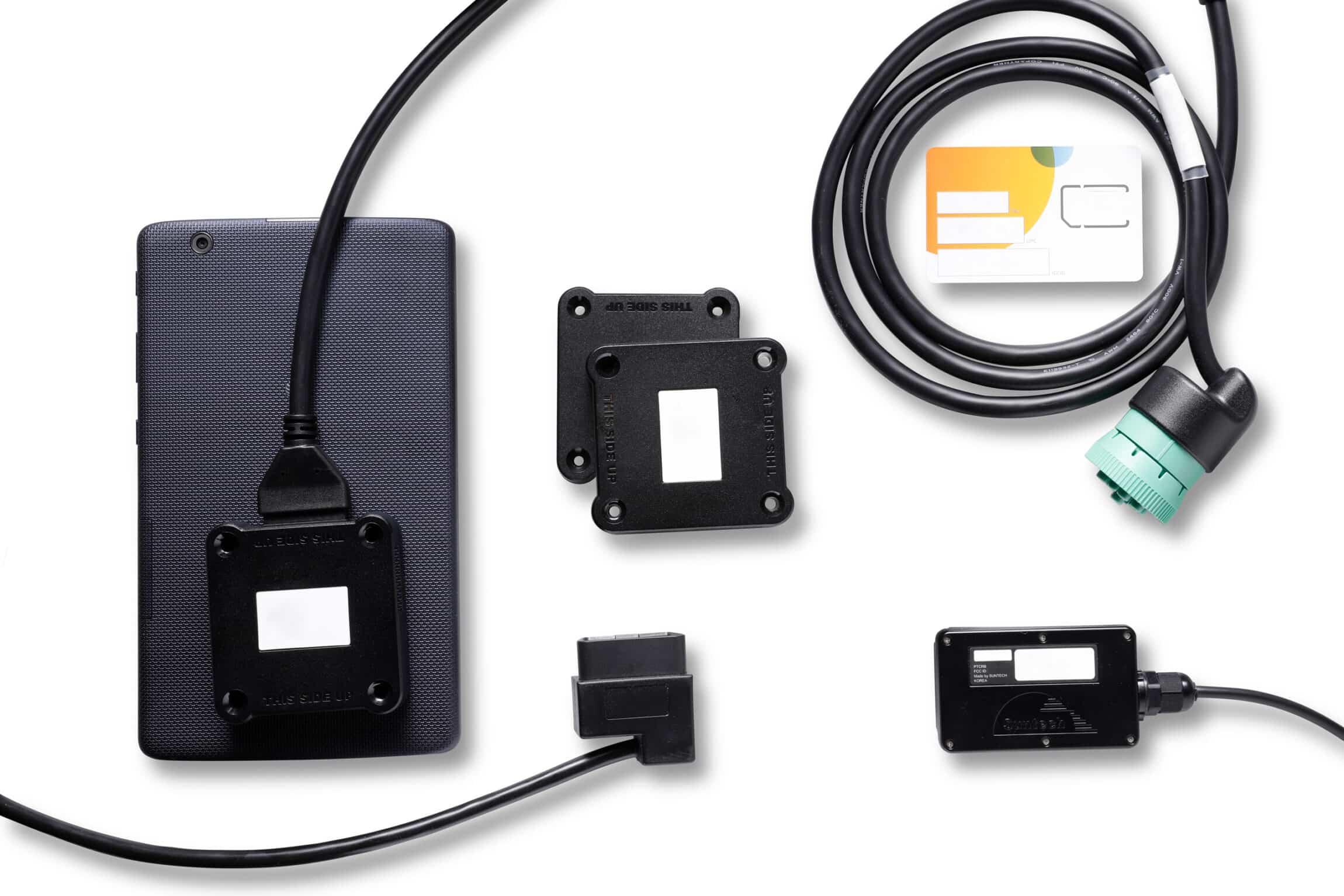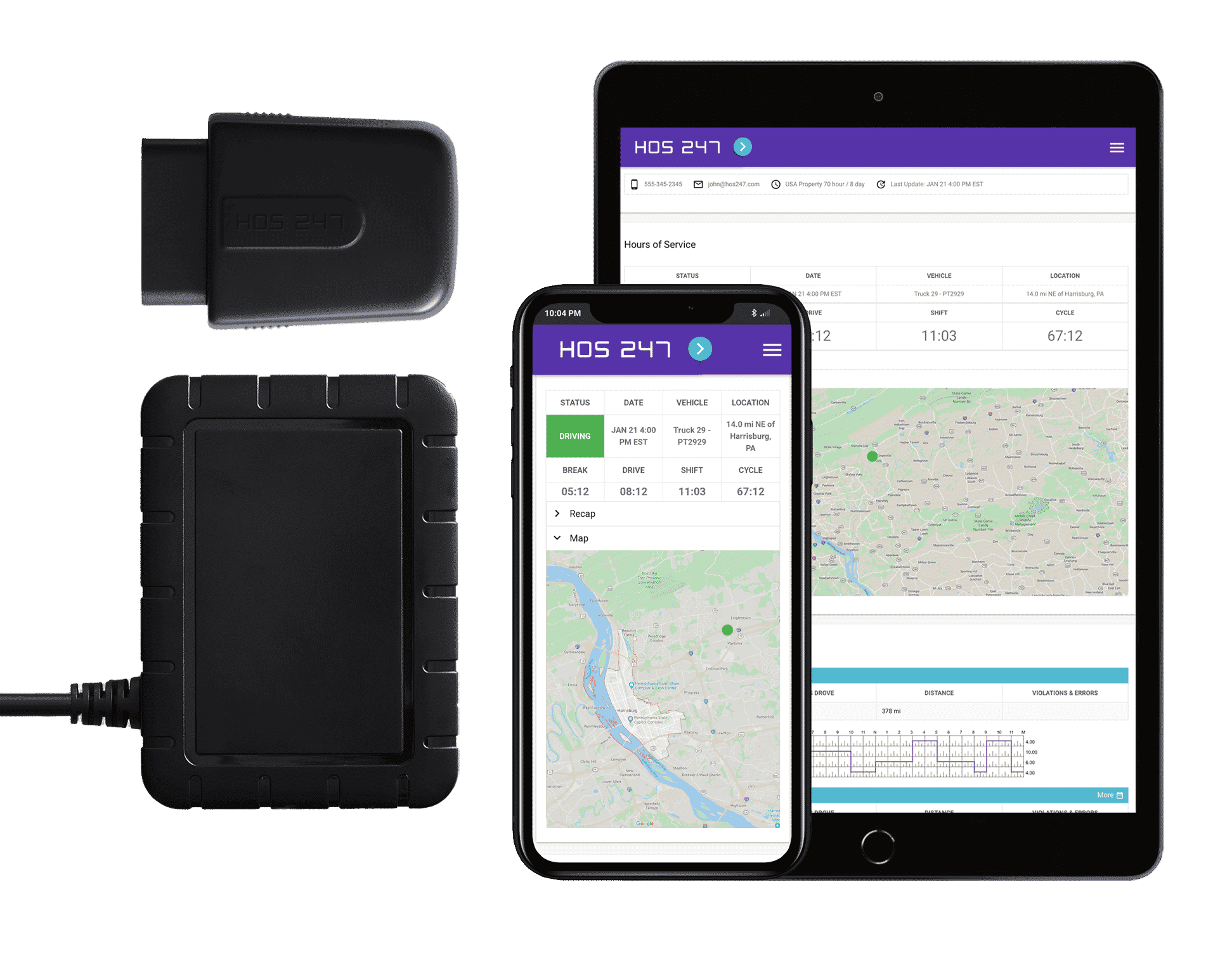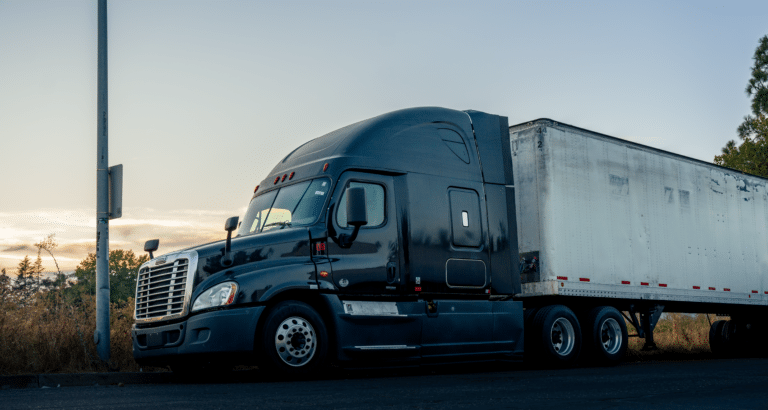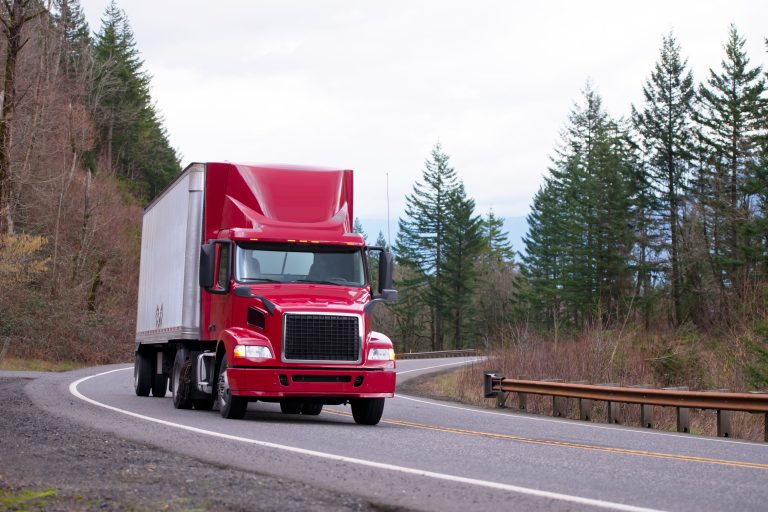Fleet management systems are designed to help transportation operations run more efficiently. Full visibility of the fleet’s activities allows managers to find ways to improve operations and keep costs low. Successful transportation businesses have evolved with technology and harness the opportunities these new systems bring. But to make the most of this technology, it’s crucial to understand how it works, how it applies to your specific needs, and how to choose the right partner.
Throughout this article, we will use the HOS247 fleet GPS tracking solution to illustrate benefits of fleet vehicle tracking and fleet management systems. We will introduce its specific benefits for motor carriers and detail the features that have made it a top-rated, reliable choice for enhancing performance and improving productivity.
Do you have any questions? Talk to ELD Advisor: 650-405-3372 or Request Callback
How Fleet Vehicle Tracking Works: The Technology Behind It
On the surface, a fleet tracking system seems simple: you see your trucks on a map. But beneath that user-friendly interface is a sophisticated blend of technologies working in perfect harmony to deliver the data you need to boost profitability and efficiency. Understanding how it all works can help you appreciate the power of the system and choose the right solution for your fleet. Let’s pull back the curtain on the technology that drives modern fleet management.
The Foundation: GPS Satellite Technology Basics
The cornerstone of any tracking system is the Global Positioning System (GPS). This incredible system is a network of about 30 satellites orbiting the Earth, constantly broadcasting signals. A GPS receiver listens for signals from multiple satellites simultaneously. By measuring the tiny differences in the time it takes to receive each signal, the device can calculate its exact position — latitude, longitude, altitude, and speed — through a process called trilateration. For a trucker, this means the system doesn’t just know which highway you’re on; it knows which lane you’re in and how fast you’re going, providing the pinpoint accuracy needed for effective management.
From the Road to Your Screen: 4G/LTE Cellular Networks
Gathering location data is only the first step. For that information to be useful, it needs to get from your vehicle to your management dashboard in near-real-time. This is where cellular networks come into play.
Just like your smartphone, every GPS tracking unit contains a small modem and a SIM card. This allows the device to connect to the internet using the same reliable 4G networks you use every day. As the GPS receiver gathers data, the cellular modem instantly transmits it over the network to a central server. This is critical for features like live tracking, instant alerts, and efficient dispatching.
The Power of the Cloud
Once the data is transmitted from your vehicle, it travels to a secure, high-powered server — what we commonly call the cloud. The cloud is essentially a centralized brain for the entire fleet management system. It receives the raw data from every vehicle in your fleet and immediately gets to work processing and organizing it.
The cloud-based software takes the constant stream of location points, speeds, and diagnostic codes and creates the maps, historical route replays, idle time reports, and maintenance alerts you see on your computer or smartphone. Because it’s cloud-based, you can access this vital information from anywhere, at any time, without needing to install complicated software or maintain your own expensive servers.
More Than Just Location: Tapping into Vehicle Diagnostics
Modern trucks are rolling computers, and the most effective fleet tracking systems tap directly into their brains. This is done through the On-Board Diagnostics (OBD-II) port, the same port mechanics use to diagnose engine problems.
By plugging a tracking device into the OBD-II port, the system can access a wealth of information far beyond simple GPS coordinates. It can read data directly from the vehicle’s Engine Control Unit (ECU), including:
- Fuel levels and consumption.
- Engine RPM and load.
- Odometer readings.
- Diagnostic Trouble Codes (DTCs) or “fault codes”
This integration turns your tracking system into a health monitor for your fleet. You can get instant alerts for engine issues before they lead to a costly breakdown on the side of the road, accurately track fuel usage to identify waste, and automate IFTA mileage reporting with precision.
Choosing Your Hardware: Types of Tracking Devices

Not all fleets are the same, which is why tracking devices come in a few different forms. Each type offers a unique combination of features, security, and installation simplicity, allowing you to choose the perfect fit for your operation.
- Plug-and-play devices. These are the simplest to install. They plug directly into the vehicle’s OBD-II port in seconds, with no tools required. They are a great option for fleets that need flexibility, as the devices can be easily moved from one vehicle to another.
- Hardwired devices. For a more permanent and tamper-proof solution, hardwired devices are installed directly into the vehicle’s power supply. They are typically concealed under the dashboard, making them invisible and preventing removal by drivers. This is the preferred option for companies concerned about security and wanting to ensure the device is always active.
- Battery-powered devices. These are self-contained, durable trackers with powerful, long-lasting batteries. Since they don’t need to be connected to the vehicle’s power, they are incredibly versatile. You can use them to track assets that don’t have their own power source, like trailers, containers, and heavy equipment, ensuring you have full visibility over all your valuable assets, not just your trucks.
From satellites in space to the diagnostic port under your dashboard, this combination of technologies works tirelessly behind the scenes. It’s this powerful, integrated system that transforms raw data into the clear, actionable insights you need to lower costs, improve customer service, and drive your business forward with confidence.
HOS247’s Top-Rated Fleet Vehicle Tracking
For years, HOS247 has been a strategic partner helping trucking companies grow their business. We provide truckers with the right tools to manage their staff and the valuable assets they transport. Our clients benefit from our experience and dedication to reliability, which yield benefits, such as:
- Top-rated customer support. We keep close communication with our clients through our knowledgeable reps. They are available every day of the week and speak English, Spanish, Polish, and Russian. Our callback policy is in place to ensure your issues get resolved as fast as possible.
- No contracts. Trust is the cornerstone of our business. Customers can have their service renewed on a monthly or yearly basis, no need to sign contracts for extended periods. Plans may be upgraded, scaled, and tailored to suit the needs of the business.
- Two-week trial period. HOS247 clients are entitled to a two-week trial to get familiar with the system. Get firsthand experience to see how HOS247 can improve their operations. If it is not what you expect, you may also return it during that time and claim a full, hassle-free refund.
- Reliable hardware. The durable hardware with optimal connectivity makes for a dependable and highly-performing solution. We have developed it to make sure it does not fail while on the road and we offer a free replacement warranty for the first year. The device can be installed quickly and with no special technical assistance.
- Top-rated solution. Users on Google Play and the App Store are highly satisfied with our complete and well-rounded service. Our reviews show users greatly appreciate the quality of the hardware, software and post-sale services.
- Compatibility. HOS247 hardware is compatible with all types of vehicles and our app is available for iOS and Android devices. The vehicle fleet tracking software can be easily downloaded and installed directly from the internet browser.
Ultimately, our focus is on providing more than just technology; we provide a partnership. This commitment to flexible service, robust hardware, and outstanding support ensures you receive a solution you can trust to deliver results from day one.

HOS247 4G Fleet Vehicle Tracking Benefits
We make it a point to be ahead of the curve in terms of changing regulations and technological shifts in the market. To ensure our clients always have a reliable connection, our vehicle fleet tracking software utilizes fast and dependable 4G/LTE cellular networks. This commitment to modern technology ensures that your HOS247 GPS is a powerful and efficient tool built not just for today, but for years to come. Here are the most important advantages of the HOS247 fleet vehicle tracking system:
- Improved cost management. HOS247’s fleet vehicle tracking system has shown to reduce costs on nearly all vehicle expenses without compromising FMCSA compliance or driver safety. Idling monitoring and optimized routes allow gas consumption to be optimized, and vehicle maintenance features help prevent costly breakdowns and prolong vehicles’ useful lives.
- Optimized customer services. By allowing real-time locations to be shared, dispatching and assignments are more efficient. The quickest routes are identified easily, times and expectations are managed accurately and the customer experience is improved considerably. The GPS vehicle fleet tracking software also keeps a record in case specific details or information is needed down the road.
- Increased safety. The vehicle security feature integrates hidden tracking devices to recover vehicles or assets in case of theft, or notify managers in case of an accident. The fleet vehicle tracking management system also keeps a schedule for maintenance activities, preventing breakdowns and ensuring the fleet is always compliant and in top condition.
- Reduced insurance premiums. Insurance providers view fleets with GPS tracking as lower-risk clients. The ability to monitor for unsafe driving behaviors like speeding, recover stolen vehicles, and provide concrete data in the event of an accident investigation often translates directly into significant discounts on insurance premiums.
- Improved CSA scores and DOT compliance. A dependable GPS tracking system is the foundation of a solid compliance strategy. It provides verifiable data to support Hours of Service logs, helping to prevent violations. By monitoring driving behavior, you can coach your team to improve performance in key CSA BASICs categories, strengthening your company’s safety rating and reputation.
- Decreased idle time. Every minute a truck is idling is money spent on fuel with zero return. Our system allows you to set up real-time alerts for excessive idling, giving you the data needed to address the issue with drivers. Reducing unproductive idle time across your fleet can lead to thousands of dollars in annual fuel savings.
- Better vehicle utilization and asset management. Fleet tracking gives you a bird’s-eye view of your entire operation, revealing which assets are being over or underutilized. This insight allows for smarter dispatching, better load planning, and efficient management of trailers and equipment, ensuring every asset is working to generate revenue.
Taken together, these benefits paint a clear picture. A 4G fleet vehicle tracking system is not just a tool for watching dots on a map; it’s a comprehensive management solution that actively reduces costs, enhances safety, ensures compliance, and ultimately drives greater profitability for your entire operation.
Fleet Tracking for Different Types of Trucking Operations
A “one-size-fits-all” approach to fleet management doesn’t work, as different trucking operations face unique daily challenges. The right tracking system must be flexible enough to address the specific priorities of your business, from compliance and cost control to asset security.
Long-Haul Trucking
Long-haul operations demand efficiency over vast distances. Key needs include robust HOS compliance, automated IFTA mileage reporting to simplify tax filings, and detailed fuel monitoring to control the largest variable cost.
Local Delivery and Last-Mile Operations
Local and last-mile delivery fleets thrive on speed and precision. They require features like real-time ETAs for customer satisfaction, multi-stop route optimization to save time and fuel, and geofencing to automate arrival and departure logs.
Construction and Heavy Equipment Fleets
Construction fleets manage expensive powered and unpowered assets across various job sites. Essential tools include battery-powered trackers for equipment, engine hour monitoring for maintenance and billing, and geofence alerts to prevent theft or unauthorized use.
Owner-Operators vs. Large Fleet Considerations
The right system scales to your needs. Owner-operators typically require a simple, all-in-one solution for compliance and GPS with strong support, while large fleets need advanced analytics, user permissions, and integration with other management software.
Refrigerated Transport Requirements
Hauling temperature-sensitive cargo requires strict control to prevent spoilage and meet FSMA regulations. Key features include remote temperature monitoring with real-time sensors, instant alerts for temperature deviations, and easy-to-generate compliance reports.
No matter the cargo or the route, the goal is the same: to run a smarter, more efficient operation. The key is to identify your fleet’s specific challenges and choose a flexible tracking solution with the features and tools necessary to meet those unique demands head-on.
Choosing the Right Fleet Tracking System: What to Look For
Selecting a fleet tracking partner is a major decision. To ensure you choose a solution that fits your needs now and in the future, it’s important to look beyond the advertised price and evaluate the features and policies that truly deliver value.
- Real-time tracking intervals. Not all “real-time” tracking is equal. A system updating every 30 seconds offers a true live view for precise dispatching, while slower updates may suffice for other needs. Clarify the provider’s standard update speed.
- Hardware options and installation. Your provider should offer a range of hardware, from simple plug-and-play devices to secure hardwired units and versatile battery-powered asset trackers. Look for durable hardware backed by a strong warranty.
- Contract flexibility. Long-term contracts lock you in, even if the service is poor. A provider offering no-contract, flexible monthly or yearly plans is more accountable and has to consistently earn your business. This policy significantly reduces your risk.
- Integration capabilities. A valuable system integrates with software you already use, like TMS or accounting platforms. This creates a central hub for your data, streamlining workflows and reducing manual data entry.
- Scalability for growing fleets. The solution you choose must be able to grow with your business. Ensure the system can seamlessly handle an expanding fleet and that the provider offers plans that can be easily scaled up or down as needed.
- Customer support quality. When a problem arises, you need immediate help. Prioritize providers known for excellent customer support, offering help seven days a week, multilingual options, and a policy that ensures a quick and effective resolution.
- Total cost of ownership (TCO). Look beyond the monthly fee and ask about the TCO. Inquire about any upfront hardware costs, installation fees, or extra charges for premium features to avoid surprises on your bill.
Ultimately, choosing a fleet tracking system is about finding a reliable partner, not just a product. By carefully considering these factors — from contract flexibility and support to the total cost — you can select a solution that provides lasting value and becomes a true asset for your business’s growth.
What Other Features Improve Trucking Operations?
Aside from fleet vehicle tracking, there are other technologies out there that allow fleets to optimize their performance, streamline processes and mitigate risks. Some providers, like HOS247, offer these useful features in addition to GPS tracking or on their own to accommodate fleets’ needs. Let’s have a look at some of these tools:
- ELD. Most fleets will be required to have an electronic logbook system in place for purposes of compliance with the federal mandate. This can be an opportunity to acquire an elog with GPS tracking as one of its features to enjoy the benefits of both within a single system and with a single investment.
- Fuel use monitoring. Fuel costs are significant, and it pays to keep them as low as possible by minimizing non-productive fuel consumption. The main way to do this is by controlling idle time.
- Idle reporting. This addition enhances the fleet’s efficiency by showing where and how non-productive time can be reduced. By controlling idle time, fleets can make notable savings in fuel costs.
- IFTA mileage calculations. IFTA taxes can be calculated for miles driven in every state by the ELD. This takes the burden off the driver and makes it an automatic process.
- Vehicle diagnostics. This feature issues fault codes and notifies the driver of malfunctions and provides a guide on how to proceed when something goes wrong.
HOS247 is a well-known provider and business partner that offers top-tier products and services. Our electronic logbook plans can be scaled up with all these features and to make trucking operations more efficient.

Basics of the ELD Mandate
The electronic logging device mandate is a legislation congressionally mandated as part of the Moving Ahead for Progress in the 21st Century Act and enforced by the FMCSA to improve driver and road safety. Under this law, commercial drivers subject to HOS regulations must keep their RODS using a federally approved electronic logging device.
This rule has also standardized the supporting documentation required from drivers and carriers to pass federal inspections. In this way, trucking companies and commercial drivers are all held to a clear and universal standard to carry out their operations within HOS limits.
The federal electronic logbook mandate has four basic principles:
- Mandatory use of ELDs. It makes the use of electronic logbooks mandatory for commercial drivers required to keep HOS records.
- ELD standards. Sets a clear benchmark for devices to ensure standards for performance and design, Manufacturers must declare they meet the criteria and register their devices with the FMCSA.
- Documentation. States the necessary supporting documents for compliance.
- Driver protection. Strictly forbids harassment of drivers on the basis of their electronic logging device data or connected technology. Drivers who believe they are being harassed can refer back to the ELD rule, which offers recourse for them to respond and manage these situations.
Ways ELDs Can Help Your Business
The capabilities of elogs can be harnessed to improve risk management and reduce paperwork, optimizing the carrier’s safety profile and boosting all-around performance. There is much more that these devices can offer beyond the basic location reports, HOS compliance and record keeping. Let’s take a closer look at how this happens:
- Reduced administrative burden. As the elog tracks, records and stores vehicle movement data automatically, manual paperwork is not necessary. A huge administrative task is automated and no longer a concern.
- Reduced liabilities. Accidents are bound to happen at some point. When they occur, the business will have to deal with the aftermath in one way or another, often in the form of lawsuits. ELDs help drivers remain on the safe side through HOS tracking, vehicle maintenance and keeping accurate records of truck movements. If the driver is not at fault, the electronic logbook records might serve to support the company.
- Lower insurance premiums. Using electronic logbooks will get carriers a significantly better insurance premium cost. The elog is an asset that increases safety, so insurance companies will offer more convenient rates when compared to those who don’t use it. The GPS fleet vehicle tracking feature also adds to the safety profile, and further pushes down insurance rates.
- Improved CSA scores. The FMCSA tracks the safety profile of motor carriers through CSA scores. Many potential violations can be prevented with a dependable electronic device, providing assurance to potential customers on the quality of service a trucking company offers.
- Increased profits. By combining the direct and indirect benefits of having an electronic logging device, business profits can increase substantially. Fewer tasks, decreased liabilities, improved safety and overall leaner management can surely increase the bottom line.
In the end, the benefits compound. Less paperwork, lower risks, better insurance rates, and higher safety scores all lead to one destination: a healthier bottom line. A reliable ELD is a strategic investment that pays dividends across your entire operation.
Conclusion
In today’s world, leveraging technology is no longer just an option — it’s essential for success. As we’ve explored, systems like ELDs and GPS fleet tracking have evolved from simple compliance tools into powerful command centers for your entire operation. They provide the visibility and data you need to navigate the complexities of modern trucking, from federal mandates to tight profit margins.
The benefits are clear and substantial. By implementing a comprehensive fleet management solution, you gain direct control over your most significant expenses, reduce liabilities, and improve your safety scores. The result is a more efficient, compliant, and profitable business, better equipped to serve your customers and stay ahead of the competition.
Choosing the right system means choosing the right partner. At HOS247, we’ve built our reputation on a foundation of trust and reliability. Our commitment to no-contract flexibility, durable hardware, and top-rated, multilingual customer support is designed to empower you, not lock you in. We provide the dependable tools and expert support your business needs to thrive.
Ready to see how a top-rated fleet management solution can transform your operations? Experience the HOS247 difference firsthand. Take advantage of our two-week, hassle-free trial to see how our system can work for you. Contact our team today to get started and take the next step toward a more efficient and profitable future.

I’ve co-founded, built and managed several transportation-related businesses. Now, I’m a founder and CEO of HOS247 – an AI Transportation Platform for trucking companies, freight brokers and other logistics operations. We are transitioning old-style operations to technology-advanced logistics entities and help them to grow their businesses. ELDs (electronic logging devices), fleet tracking and management 2.0 combined with AI-powered dispatch tools.












Installing an electronic logging device shouldn’t be complicated, but many truckers find themselves overwhelmed by confusing instructions, compatibility issues, and the fear of getting it wrong. You’re not alone if you’ve been putting off this upgrade or struggling with a

Selecting a truck logbook for owner-operator drivers may seem easy, but one must think carefully to find the most effective option. Large carriers have different needs compared to truckers who drive their own vehicle. That said, we have prepared this

The electronic logbook law is another term for the ELD Mandate, which is a federal law requiring certain commercial motor vehicle drivers to use electronic log devices (ELDs or elogs). This new law on electronic logs shouldn’t be news to